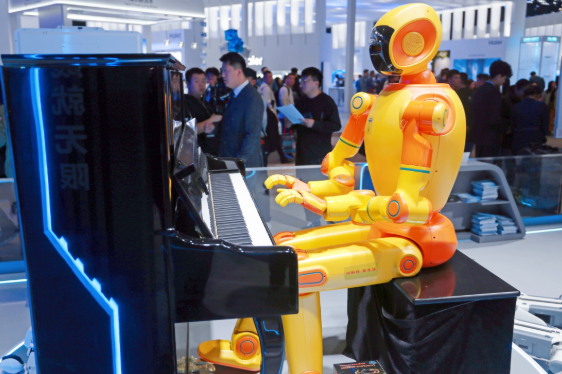
The music industry has always been a hub of innovation, constantly evolving with new technologies that shape how songs are produced, consumed, and distributed. Over the past decade, Artificial Intelligence (AI) has started playing a crucial role in transforming the landscape of music, especially within the pop genre. From creating catchy melodies to analyzing market trends, AI is helping to predict chart-toppers and even generate music that resonates with global audiences. In fact, tools like producing your own music AI generator are now available for budding artists, allowing anyone with an idea to create high-quality music using AI.
But how exactly is AI influencing pop music, and can it really predict which songs will make it to the top of the charts? Let’s explore how this technology is changing the music scene.
The Role of AI in Music Production
AI’s influence on music production is nothing short of revolutionary. Today, AI-powered software can generate entire songs, suggest chord progressions, or even fine-tune vocal performances. Machine learning algorithms analyze vast amounts of music data-tuning into different patterns and structures in popular songs-to help create tracks that hit all the right notes. Producers and artists alike can now leverage these tools to experiment with new sounds and create compositions faster than ever before.
For example, AI tools like OpenAI’s MuseNet and Jukedeck allow users to generate original compositions across various genres, with pop music being one of the most popular requests. The AI isn’t just imitating existing hits-it learns what makes certain elements of a song appealing to listeners and applies those insights to create something fresh. These advancements mean that artists can focus on their creativity and storytelling while AI handles the technical aspects of music production.
Read also: Beautiful: the Carole King Musical Film
AI and Chart Prediction: What Data Can Tell Us
Predicting which songs will be future chart-toppers is no longer solely reliant on the intuition of music critics or radio DJs. Thanks to AI, data analysis is now a crucial part of the decision-making process. AI uses machine learning algorithms to analyze trends in streaming data, social media interactions, user-generated content, and even lyrics. It considers factors like tempo, key, lyric sentiment, and the use of certain musical elements-like catchy hooks-that have historically performed well in pop music.
For instance, platforms like Spotify and Apple Music already use AI to recommend tracks based on your listening habits. However, companies have now taken it a step further by applying AI to predict which emerging songs are likely to become hits. By tracking data from thousands of user interactions, AI can spot trends in real-time and identify songs that are gaining traction among listeners. This type of predictive analytics is used not just by music services, but also by record labels to decide which tracks to promote.
In fact, a 2019 study found that AI models used by music prediction companies like Predictive Music Analytics had a correlation rate of 85% when it came to predicting which songs would become hits. These predictions are not only changing how songs are marketed but also how artists and producers approach music creation.
AI-Generated Music and Audience Engagement
One of the most exciting developments in AI’s influence on pop music is the creation of songs designed to appeal to specific audiences. By analyzing listener preferences and demographic data, AI can tailor a song’s tempo, lyrics, and arrangement to maximize listener engagement. It’s almost as if AI can craft music that feels tailor-made for you!
Take, for instance, the AI-generated song “I’m AI” by the virtual band Yona. It was created by a team using AI to analyze current pop music trends and generate an upbeat track that listeners would find catchy. The song made waves on streaming platforms, sparking conversations about the future of AI in music creation.
Artists can now engage with their audiences on a deeper level by using AI to analyze user-generated content, feedback, and streaming behaviors. This allows musicians to create songs that resonate more deeply with listeners, ensuring that their work is more likely to succeed in a crowded market.
The Future of AI in Pop Music
Looking ahead, it’s clear that AI’s role in pop music is only going to grow. The integration of AI into music production tools will make it easier for anyone to create professional-sounding tracks without needing a traditional background in music theory or production. As more creators harness the power of AI, we could see a shift in how popular music is produced, with more diversity in the types of songs that chart.
However, with all this automation, there is also the question of authenticity. Will AI-created music lack the emotional depth and human connection that defines the greatest pop songs? While AI can analyze patterns and trends, it still can’t replicate the emotional resonance of a song written from personal experience. For now, it seems that the best pop hits will still require a blend of both human creativity and AI assistance.
Conclusion
AI’s impact on pop music is undeniable, and its role in shaping the industry will only continue to grow. From predicting chart-toppers to producing high-quality music using AI generators, the future of music is being redefined in exciting ways. As artists and producers continue to experiment with this technology, the potential for new sounds, hits, and audience connections is limitless.
As the lines between human creativity and AI innovation blur, it’s clear that we’re on the cusp of a new era in music. Whether you’re a listener, a budding artist, or someone looking to harness AI in your music production, the possibilities are endless. Keep an eye on this space—AI is here to stay, and it’s changing the game for pop music in ways we could have never imagined before.




